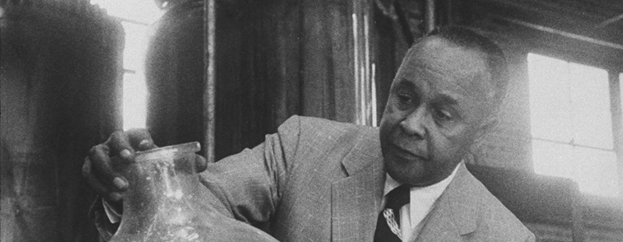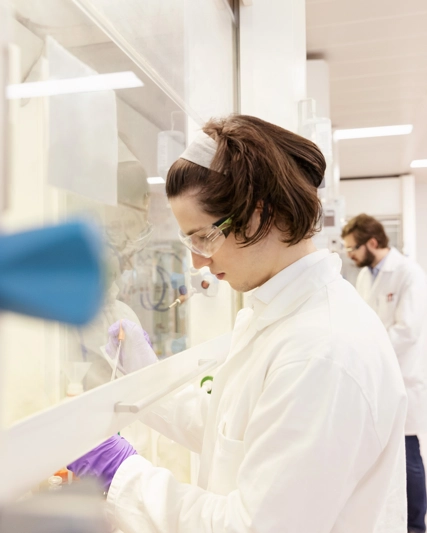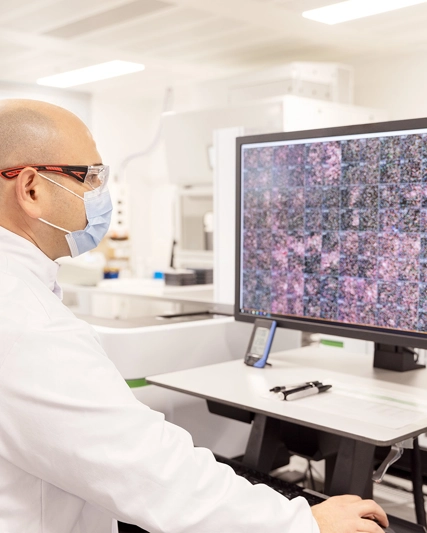Julian was born in Montgomery, Alabama, in 1899, the grandson of former slaves. He attended school through the eighth grade and as a young teenager applied to DePauw University in Greencastle, Indiana.
For many, college at such a young age would be unheard of, but for Julian it was his only option as no Montgomery high schools were open to black students at the time.He graduated first in his class at DePauw, with Phi Beta Kappa honors. Julian then worked as a chemistry instructor at Fisk University before receiving a scholarship to attend Harvard University, where he earned his master’s degree. From there, he traveled for several years, teaching at black colleges, before earning his Ph.D. in chemistry at the University of Vienna in Austria in 1931 – one of the first African Americans to do so.
In 1935, he earned international acclaim by synthesizing physostigmine from the calabar bean to create a drug treatment for glaucoma. However, facing discrimination because of his race, Dr. Julian decided to leave academia for a role with a chemical company where he had many achievements, including the invention of Aero-Foam, a soy-based fire-retardant product that used was widely used in World War II. He also discovered how to extract sterols from soybean oil and synthesize the hormones progesterone and testosterone. He was celebrated for his synthesis of cortisone, which became used in the treatment of rheumatoid arthritis.
In 1953, he established his own enterprise, Julian Laboratories, to perform research and manufacture synthesized steroids from Mexican yams. His pioneering company served as a training ground for dozens of promising young African American chemists, thereby breaking the color barrier in American industrial science.
During this time, Dr. Julian also served as a research associate of Smith Kline & French (SKF) pharmaceutical company (now part of GSK), where he worked closely with the Research & Development Division. In 1961, Dr. Julian sold his company to SKF in order to focus more on research, which he continued to do in association with SKF.
This sale made Julian one of the first African American millionaires, and further propelled him to become a civic and civil rights leader, as a fundraiser and prominent public speaker for racial justice. We are proud to celebrate the accomplishments of Dr. Julian, and we are honored to count his history as part of our own. His contributions to science and his commitment to racial equality in the lab helped make the innovation of today’s GSK labs possible.



